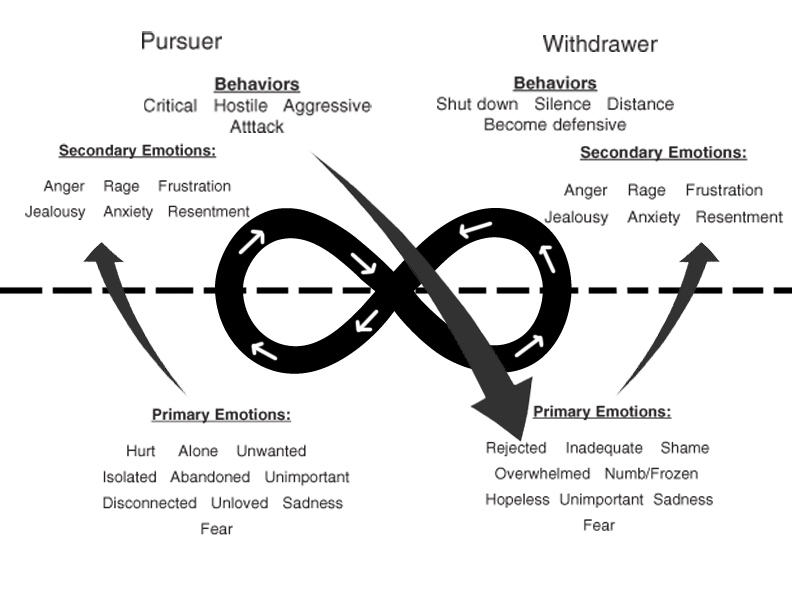I think it is so important to remember that no marriage is perfect! And if you are struggling in your marriage – you are totally NOT alone. I am so honored to introduce you all to Sam Tielemans, a marriage and family therapist in Las Vegas, to talk today a little about why marriages really struggle and what YOU can do to strengthen your marriage and help that love continue to grow between you and your spouse!
Sam, take it away:
Marriage is a wonderful thing, especially in the honeymoon phase – unrestrained PDA, cute little notes, heart emoticons in texts, surprise gifts and flowers. There’s nothing better. You then may wonder where things go wrong for bright-eyed newlyweds, and what brings them to the point of wanting to call the relationship off and walk away.
There are a number of reasons why people who seek counseling say their marriage isn’t working – incompatibility, an affair, fights over money and intimacy, or that they have fallen out of love.
In reality, it goes much deeper than what often meets the eye. When couples come in to see me for counseling, I see a common thread that runs through each of the cases – there is a lack of emotional connection between the couple, and unless there is a course correction, the relationship slowly starts to erode until one or both people have a hard time remembering why they got together in the first place.
Photo by our talented photographer Canico Studios
The good news is that relationships can be repaired, wounds can be healed, and love can be restored, and a part of what helps in this process is understanding how couples end up in distress and what they need to do to get out.
In the most common of examples, let’s look at the busy 9-to-5 working husband who wants to get home as fast as possible. His wife is already at home waiting for him, and he rushes through the door, greets her with a traditional hug and kiss… then he jumps onto the couch and turns on the television. “How was your day?” she asks. “Fine,” he says. She sees that she is losing him to the warm glow of the TV. “Mine was rough,” she laments. Silence.
She feels annoyed and quickly begins to remind him that the garage wasn’t cleaned like he promised, and that the dishes are still in the sink from dinner last night. “I’ll get to it later. The Cowboys are playing.” She naturally becomes even more frustrated, increases the volume and intensity of her complaints, and, predictably, he becomes defensive, shuts down, and leaves the room.
Over time, interactions like these literally erode away the foundation of a marriage and leave both spouses resentful, hurt, and disconnected from each other. So who’s to blame in this? It’s clearly his fault because he hasn’t done what he said he was going to do. Or is it her fault because she won’t stop nagging him?
The answer is neither is to blame. The issue is the negative interaction cycle that they are caught in, which cycle is common to all of us. These interactions decrease the affection and love that spouses show to each other.
In her book, Hold Me Tight, Dr. Sue Johnson explains that as human beings, we are hard-wired to seek comfort and connection from our significant other, so when we feel like that is slipping away, our brains are triggered into a primal panic response – fight or flight.
Let’s take a deeper look at the interaction above. When the wife feels shut out and ignored by her husband as he watches TV, she feels hurt, alone, and unimportant. Because those emotions are hard to handle, they quickly turn to anger and frustration, so she yells at him and reminds him of his shortcomings.
When she yells at him, the message he hears is that he has disappointed her and that he isn’t doing a good enough job. Feeling overwhelmed and rejected because of his wife’s criticism, he shuts down and numbs out in order to manage the pain.
The trouble is, the more he shuts down and withdraws to preserve himself and the relationship from getting worst, the more she feels shut out and unimportant. The more unimportant she feels, the more she ups the ante, criticizes and blames him, which leaves him feeling more inadequate, so he shuts down further.
The behaviors of the one trigger the pain and insecurities of the other and pulls him / her into the cycle.
So how do we escape this cycle?? The answer: vulnerability. The hardest thing in the world. In those moments that your fears, pain, and inadequacies are touched, those under-the-surface emotions, we need to let our spouse know. When we are reactive and upset, the only thing the other one sees is anger and frustration, which drives the spouse further away.
By sharing our hurts with spouses, which hurts are oftentimes a result of an unintentional word or deed, we invite our spouse closer to be able to give the comfort and reassurance that we need. We are triggered into fight or flight mode when we feel we are in danger of losing connection with our spouse, the safety of a secure bond. However, we are moved with compassion when we see their suffering, and we are more able to offer comfort.
Through the ebbs and flows of life, hardships, differing ideas on parenting, financial trouble, or whatever else we are faced with, as we are securely connected to our spouse, anything is possible to overcome.
“Love is a constant process of tuning in, connecting, missing and misreading cues, disconnecting, repairing, and finding deeper connection. It is a dance of meeting and parting and finding each other again. Minute to minute and day to day” (Sue Johnson, 2014)
By turning to our spouse and sharing our vulnerabilities and fears, old wounds can be healed, relationships can be restored, and we can move forward with the confidence that we are cared for and loved by our most loved and cared-for person.
Sam Tielemans is a marriage and family therapist licensed state intern, and specializes in working with couples and can help them work through a variety of issues, some of which include communication problems, infidelity, and pornography addictions. He graduated with his Master’s degree in Marriage and Family Therapy, and he works in Las Vegas. If you would like to get in contact with him, you can reach him at samueltielemans@gmail.com and his website is samtielemansmft.com




 Google+
Google+
Christine Wilke
November 27, 2016 at 2:45 am (7 years ago)Im a Licensed Marriage and Family Therapist for over 20 years and this is really good stuff! Thanks for sharing this.
Amanda @ The Oilfield Mom Survival Guide
September 26, 2014 at 1:54 am (10 years ago)Wow! Very, very informative! Coming to think of it, every one of our past struggles sounds exactly like what Sam described. And every single time, vulnerability is what got us back to where we want to be.
Thanks again for this info! It is definitely something I would be sharing with other couples!
-Amanda
Maggie C
September 25, 2014 at 8:16 pm (10 years ago)Wow, what a damaging cycle! I learned a lot from Sam, thanks!